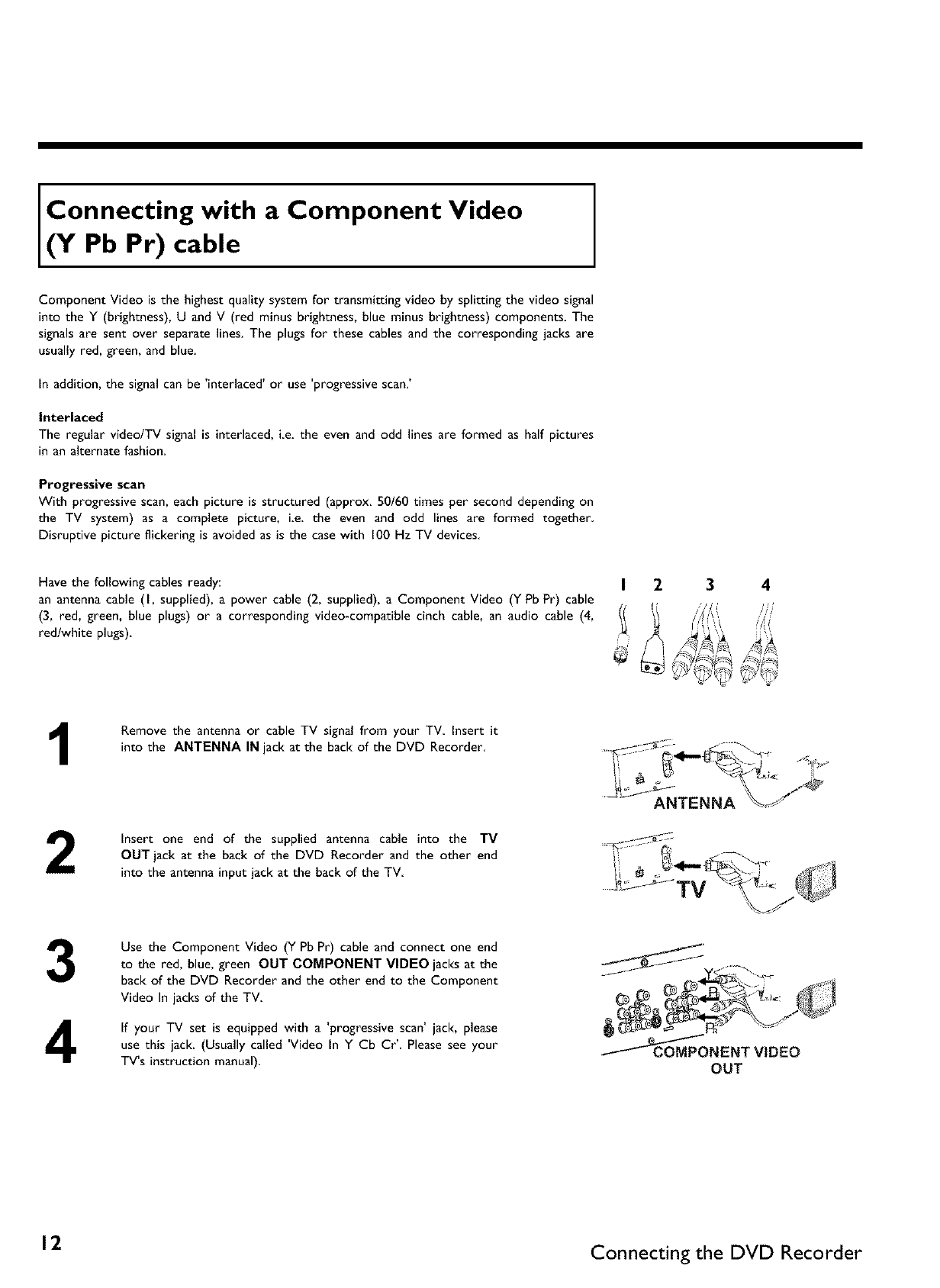
Connecting with a Component Video
Of Pb Pr) cable
Component Video is the highest quality system for transmitting video by splitting the video signal
into the Y (brightness), U and V (red minus brightness, blue minus brightness) components. The
signals are sent over separate lines. The plugs for these cables and the corresponding jacks are
usually red, green, and blue.
In addition, the signal can be 'interlaced' or use 'progressive scan.'
Interlaced
The regular videolTV signal is interlaced, ie. the even and odd lines are formed as half pictures
in an alternate fashion.
Progressive scan
With progressive scan, each picture is structured (approx. 50/60 times per second depending on
the TV system) as a complete picture, i.e. the even and odd lines are formed together
Disruptive picture flickering is avoided as is the casewith 100 Hz TV devices
Have the following cables ready:
an antenna cable (I, supplied), a power cable (2, supplied), a Component Video (Y Pb Pr) cable
(3, red, green, blue plugs) or a corresponding video-compatible cinch cable, an audio cable (4,
red/white plugs)
I 2 3 4
1
2
Remove the antenna or cable TV signal from your TV Insert it
into the ANTENNA IN jack at the back of the DVD Recorder
Insert one end of the supplied antenna cable into the TV
OUT jack at the back of the DVD Recorder and the other end
into the antenna input jack at the back of the TV
ANTENNA
3
4
Use the Component Video (Y Pb Pr) cable and connect one end
to the red, blue, green OUT COMPONENT VIDEO jacks at the
back of the DVD Recorder and the other end to the Component
Video In jacks of the TV.
If your TV set is equipped with a 'progressive scan' jack, please
use this jack. (Usually called 'Video In Y Cb Cr' Please see your
TV's instruction manual).
f_
_NENT VIDEO
OUT
12 Connecting the DVD Recorder


















